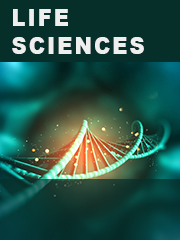TOP CATEGORY: Chemicals & Materials | Life Sciences | Banking & Finance | ICT Media

Download Report PDF Instantly
Report overview
The "Global Gene Therapy in Cardiovascular Disorder Market" was valued at US$ 99.00 million in 2024 and is predicted to reach US$ 278.31 million by 2030, exhibiting a Compound Annual Growth Rate (CAGR) of 18.8% during the forecast period (2024-2030).
Gene therapy for cardiovascular disorders is a cutting-edge therapeutic approach that involves the delivery, modification, or replacement of genes within cardiovascular tissues to treat or prevent heart and vascular diseases. This innovative method aims to address the underlying genetic or molecular causes of various cardiovascular conditions, which can range from congenital heart defects and ischemic heart disease to heart failure and arrhythmias.
Mechanism:
Targets and Strategies:
Advantages:
Challenges:
Gene therapy for cardiovascular disorders represents a promising frontier in medical research, with the potential to significantly improve treatment outcomes for patients with various heart and vascular diseases. As research advances, it may lead to more effective and targeted therapies that address the root causes of these conditions.
The global key manufacturers of Gene Therapy in Cardiovascular Disorder include Renovacor, Gene Biotherapeutics, AskBio, Human Stem Cells Institute and Novartis, etc. in 2023, the global top five players have a share approximately % in terms of revenue.
Gene therapy is an experimental technique that uses genes to treat or prevent disease. In the future, this technique may allow doctors to treat a disorder by inserting a gene into a patient's cells instead of using drugs or surgery.
This report aims to provide a comprehensive presentation of the global market for Gene Therapy in Cardiovascular Disorder, with both quantitative and qualitative analysis, to help readers develop business/growth strategies, assess the market competitive situation, analyze their position in the current marketplace, and make informed business decisions regarding Gene Therapy in Cardiovascular Disorder. This report contains market size and forecasts of Gene Therapy in Cardiovascular Disorder in global, including the following market information:
We has surveyed the Gene Therapy in Cardiovascular Disorder companies, and industry experts on this industry, involving the revenue, demand, product type, recent developments and plans, industry trends, drivers, challenges, obstacles, and potential risks.
Total Market by Segment:
Global Gene Therapy in Cardiovascular Disorder Market, by Type, 2019-2024, 2025-2030 ($ millions)
Global Gene Therapy in Cardiovascular Disorder Market Segment Percentages, by Type, 2023 (%)
Global Gene Therapy in Cardiovascular Disorder Market, by Application, 2019-2024, 2025-2030 ($ millions)
Global Gene Therapy in Cardiovascular Disorder Market Segment Percentages, by Application, 2023 (%)
Global Gene Therapy in Cardiovascular Disorder Market, By Region and Country, 2019-2024, 2025-2030 ($ Millions)
Global Gene Therapy in Cardiovascular Disorder Market Segment Percentages, By Region and Country, 2023 (%)
Competitor Analysis
The report also provides analysis of leading market participants including:
Further, the report presents profiles of competitors in the market, key players include:
Outline of Major Chapters:
Chapter 1: Introduces the definition of Gene Therapy in Cardiovascular Disorder, market overview.
Chapter 2: Global Gene Therapy in Cardiovascular Disorder market size in revenue.
Chapter 3: Detailed analysis of Gene Therapy in Cardiovascular Disorder company competitive landscape, revenue and market share, latest development plan, merger, and acquisition information, etc.
Chapter 4: Provides the analysis of various market segments by type, covering the market size and development potential of each market segment, to help readers find the blue ocean market in different market segments.
Chapter 5: Provides the analysis of various market segments by application, covering the market size and development potential of each market segment, to help readers find the blue ocean market in different downstream markets.
Chapter 6: Sales of Gene Therapy in Cardiovascular Disorder in regional level and country level. It provides a quantitative analysis of the market size and development potential of each region and its main countries and introduces the market development, future development prospects, market space of each country in the world.
Chapter 7: Provides profiles of key players, introducing the basic situation of the main companies in the market in detail, including product sales, revenue, price, gross margin, product introduction, recent development, etc.
Chapter 8: The main points and conclusions of the report.